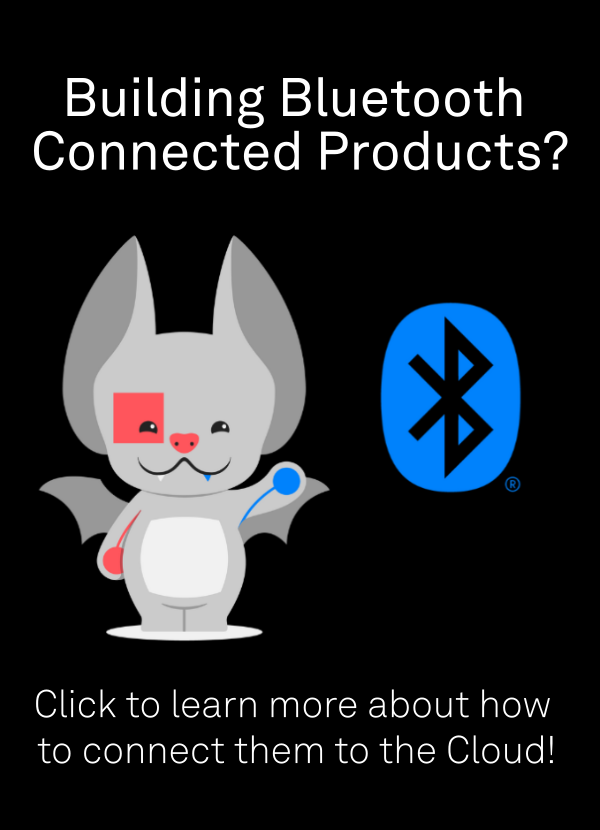The Golioth Zephyr SDK is now 100% easier to use. The new v0.4.0 release was tagged on Wednesday and delivers all of the Golioth features with less coding work needed to use them in your application. Highlights include:
- Asynchronous function/callback declaration is greatly simplified
- User-defined data can now be passed to callbacks
- Synchronous versions of each function were added
- API is now CoAP agnostic (reply handling happens transparently)
- User code no longer needs to register an
on_message()callback - Verified with the latest Zephyr v3.2.0 and NCS v2.1.0
The release brings with it many other improvements that make your applications better, even without knowing about them. For the curious, check out the changelog for full details.
Update your code for the new API (or not)
The new API includes some breaking changes and to deal with this you have two main options:
- Update legacy code to use the new API
- Lock your legacy code to a previous Golioth version
1. Updating legacy code
The Golioth Docs have been updated for the new API, and reading through the Firmware section will give you a great handle on how everything works. The source of truth continues to be the Golioth Zephyr SDK reference (Doxygen).
Updating to the new API is not difficult. I’ve just finished working on that for a number of our hardware demos, including the magtag-demo repository we use for our Developer Training sessions. The structure of your program will remain largely the same, with Golioth function names and parameters being the most noticeable change.
Consider the following code that uses the new API to perform an asynchronous get operation for LightDB State data:
/* The callback function */
static int counter_handler(struct golioth_req_rsp *rsp)
{
if (rsp->err) {
LOG_ERR("Failed to receive counter value: %d", rsp->err);
return rsp->err;
}
LOG_HEXDUMP_INF(rsp->data, rsp->len, "Counter (async)");
return 0;
}
/* Register the LightDB Get callback from somewhere in your code */
static int my_function(void)
{
int err;
err = golioth_lightdb_get_cb(client, "counter",
GOLIOTH_CONTENT_FORMAT_APP_JSON,
counter_handler, NULL);
}
Previously, the application code would have needed to allocate a coap_reply, pass it as a parameter in the get function call, use the on_message callback to process the reply, then unpack the payload in the reply callback before acting on it. All of that busy work is gone now!
With the move to the v0.4.0 API, we don’t need to worry about anything other than:
- Registering the callback function
- Working with the data (or an error message) when we hear back from Golioth.
You can see the response struct makes the data itself, the length of the data, and the error message available in a very straightforward way.
A keen eye already noticed the NULL as the final parameter. This is a void * type that lets you pass your user-defined data to the callback. Any value that’s 4-bytes or less can be passed directly, or you can pass a pointer to a struct packed with information. Just be sure to be mindful of the memory allocation lifespan of what you pass.
All of the asynchronous API function calls follow this same pattern for callbacks and requests. The synchronous calls are equally simple to understand. I found the Golioth sample applications to be a great blueprint for updating the API calls in my application code. The changelog also mentions each API-altering commit which you may find useful for additional migration info.
The Golioth Forum is a great place to ask questions and share your tips and tricks when getting to know the new syntax.
2. Locking older projects to an earlier Golioth
While we recommend updating your applications, if you do have the option to continue using an older version of Golioth instead. For that, we recommend using a west manifest to lock your project to a specific version of Golioth.
Manifest files specify the repository URL and tag/hash/branch that should be checked out. That version is used when running west update, which then imports a version of Zephyr and all supporting modules specified in the Golioth SDK manifest to be sure they can build the project in peace and harmony.
By adding a manifest to your project that references the Golioth Zephyr SDK v0.3.1 (the latest stable version before the API change) you can ensure your application will build in the future without the need to change your code. Please see our forum thread on using a west manifest to set up a “standalone” repository for more information.
A friendlier interface improves your Zephyr experience
Version 0.4.0 of the Golioth Zephyr SDK greatly improves the ease-of-use when adding device management features to your IoT applications. Device credentials and a few easy-to-use APIs are all it takes to build in data handling, command and control, and Over-the-Air updates into your device firmware. With Golioth’s Dev Tier your first 50 devices are free so you can start today, and as always, get in touch with us if you have any questions along the way!


No comments yet! Start the discussion at forum.golioth.io